War and humanitarianism, medicine and public health, rights and justice... Discover CRASH publications sorted by themes.
The fact that CRASH publications are written from an aid practitioner's, rather than researcher's, perspective, does not exempt them from the demands of rigorous research methods. We try hard at this, with the help of (volunteer) research professionals. The publications are not the MSF party line, but rather tools for reflexion based on MSF's framework and experience. They have only one purpose: to help us better understand what we are doing. Criticisms, comments and suggestions are more than welcome - they are expected.
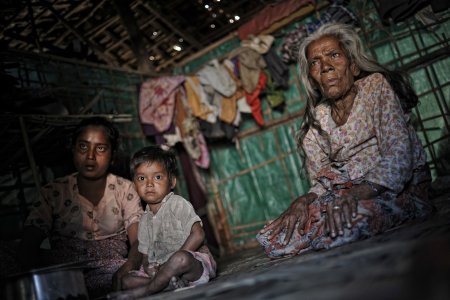 Kaung Htet
Speaking Out Case Studies
Kaung Htet
Speaking Out Case Studies
MSF and the Rohingya 1992 - 2014
11/19/2020The case study "MSF and the Rohingya 1992 - 2014" brings to light two decades of MSF advocacy activities as part of its humanitarian assistance to the Rohingya people in Bangladesh and Myanmar and explores the questions and dilemmas the organisation was confronted with surrounding speaking out.
The invention of impartiality: the history of a humanitarian principle, from a legal, strategic and algorithmic perspective
11/18/2020The principle of impartiality, which is often reduced to a principle of mathematical distribution, was originally coined by the International Committee of the Red Cross (ICRC), at that time on a quest for legitimacy. However, reducing impartiality to a resource distribution algorithm strengthens the overarching position held by non-territorial organisations. This is the theory put forward by the author in his latest book.
MSF and kidnappings - the secrets and the dilemmas
09/18/2020On the 31st January, a symposium was held at Sciences Po in support of Fariba Adelkhah and Roland Marchal, researchers at Sciences Po's Center for International Research (CERI) who were arrested in Iran on June 5, 2019. Roland Marchal was released on 20th March 2020 in exchange for an Iranian engineer detained in France. On 6th May Fariba Adelkhah was sentenced to 6 years imprisonment for "propaganda against the political system of the Islamic Republic, and collusion to undermine national security". The researcher was offered conditional release on condition that she terminates her research, but she refused.
The symposium brought together diplomats, journalists, humanitarians and researchers, with the aim of "nourishing reflection about prisoners and hostages, from a political, legal and ethical point of view". Fabrice Weissman presented the experience of Médecins Sans Frontières in the face of kidnappings.
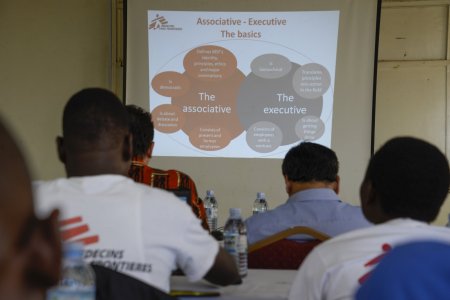 Aurélie Baumel
Interview
Aurélie Baumel
Interview
From bureaucratic inertia to “policy fragility”
09/08/2020Interview by Helai Hosseini. A first version was published on the website of the MSF France association on 31 July 2020.
In the wake of the Black Lives Matter movement in the United States, voices have risen within MSF denouncing the racist and discriminatory nature of our organization. Equal opportunity, they say, is not offered to all our employees. Founded in France in the early 70s by a handful of doctors and journalists, the organization has grown and become international, now employing over 46,000 people around the world, nearly 39,000 of whom are recruited locally. How has MSF’s policy towards its personnel evolved down the years? What is currently being done to fight inequalities? Here is Jean Hervé Bradol’s take on the major phases that have marked MSF’s transformation and the ways in which discussions are engaged today.
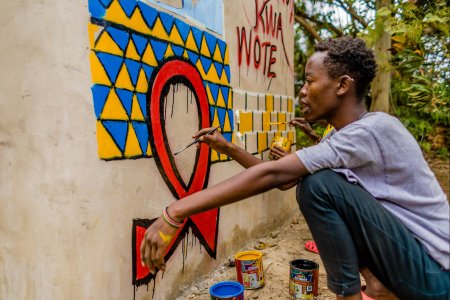 Bryan Jaybee
Cahier
Bryan Jaybee
Cahier
Representations of HIV and impact on care seeking among the men of Homa Bay, Kenya
06/09/2020This study, conducted among the men of Homa Bay in Nyanza Province, Kenya, assesses the representations of HIV and impact on care seeking. It reveals that simply setting up a testing or care campaign does not necessarily mean that the entire population will participate; the message has to be tailored to the target population and fine-tuned even within that population.
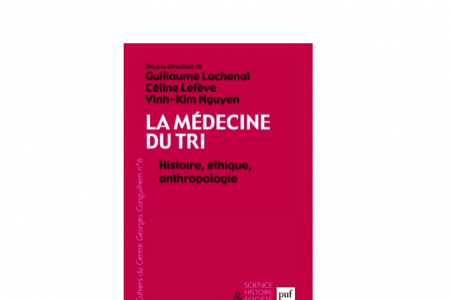 Puf
Analysis
Puf
Analysis
In a disaster situation: get your bearings, triage and act
04/03/2020On 12 January 2010, a high-magnitude earthquake caused numerous buildings in the city of Port au Prince in Haiti to collapse. Tens of thousands of people were killed or injured by falling blocks of concrete. The aftershocks from the earthquake, the predictions made by some seismologists and public rumours prompted fears of a repeat of the disaster. Houses, schools, churches, hospitals and business premises – all the places that had housed the capital’s residents and their main activities – had become lethal traps and a permanent threat.
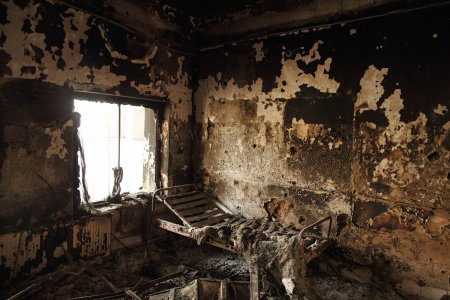 Andrew Quilty
Op-ed
Andrew Quilty
Op-ed
Julian Assange, or the vengeance of States
Concerned about the fate of these two whistleblowers, particularly the founder of Wikileaks, Jean-Hervé Bradol and Rony Brauman, former presidents of Doctors Without Borders, demand that he receive treatment.
The Challenges of Globalization of International Relief and Development
11/27/2019First Published December 1, 1999 - Nonprofit and Voluntary Sector Quarterly (NVSQ) - Volume 28 Issue 1.
This article begins with a look at the role played by Médecins Sans Frontières (MSF) since its inception in 1971, and then looks at the challenges facing MSF today. It focuses on the confusion of humanitarian and political roles and on the goals MSF has laid out for itself to address this confusion. Humanitarian aid has become the favored response of governments to political crises, and governments have increasingly turned to NGOs to carry out their policies. In turn, NGOs have become increasingly dependent on governments for financial support. These changes have politicized aid delivery and made it difficult for NGOs to maintain their independence. In addition, as the number of NGOs increases and their activities become more specialized, there are pressures toward institutionalization and bureaucratization. To respond to these challenges, MSF has identified several goals, including maintaining organizational independence and flexibility and avoiding bureaucratization.
War Breaks Out: Interpreting Violence on Healthcare in the Early Stage of the South Sudanese Civil War
11/22/2019This article seeks to document and analyse violence affecting the provision of healthcare by Médecins Sans Frontières (MSF) and its intended beneficiaries in the early stage of the current civil war in South Sudan. Most NGO accounts and quantitative studies of violent attacks on healthcare tend to limit interpretation of their prime motives to the violation of international norms and deprivation of access to health services. Instead, we provide a detailed narrative, which contextualises violent incidents affecting healthcare, with regard for the dynamics of conflict in South Sudan as well as MSF’s operational decisions, and which combines and contrasts institutional and academic sources with direct testimonies from local MSF personnel and other residents. This approach offers greater insight not only into the circumstances and logics of violence but also into the concrete ways in which healthcare practices adapt in the face of attacks and how these may reveal and put to the test the reciprocal expectations binding international and local health practitioners in crisis situations.
